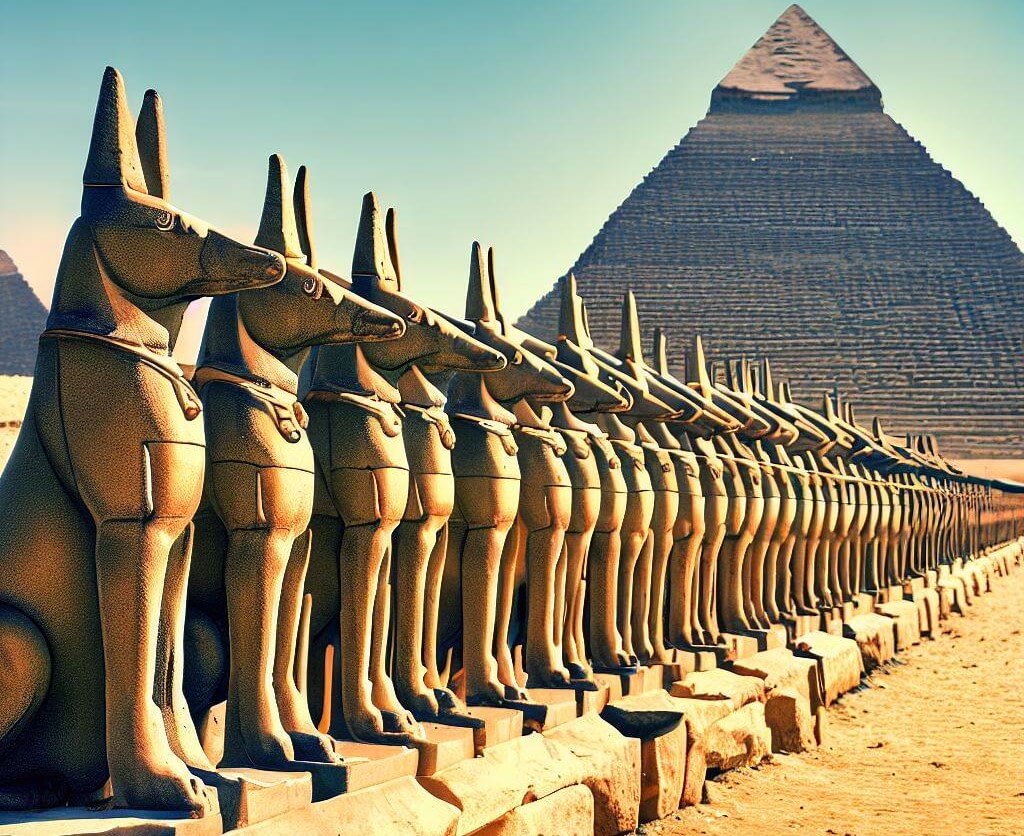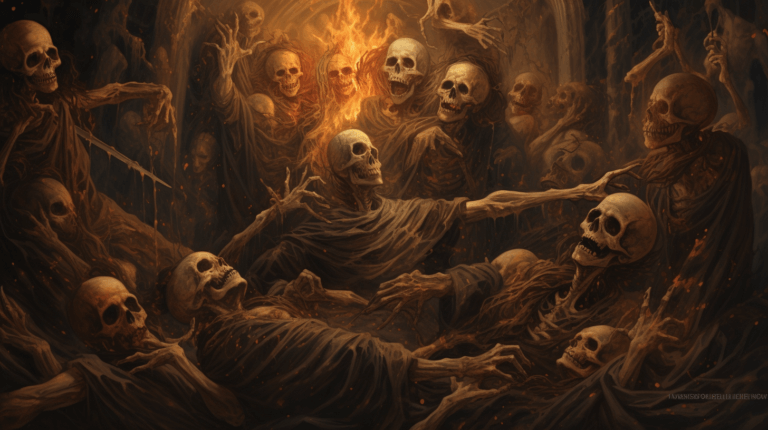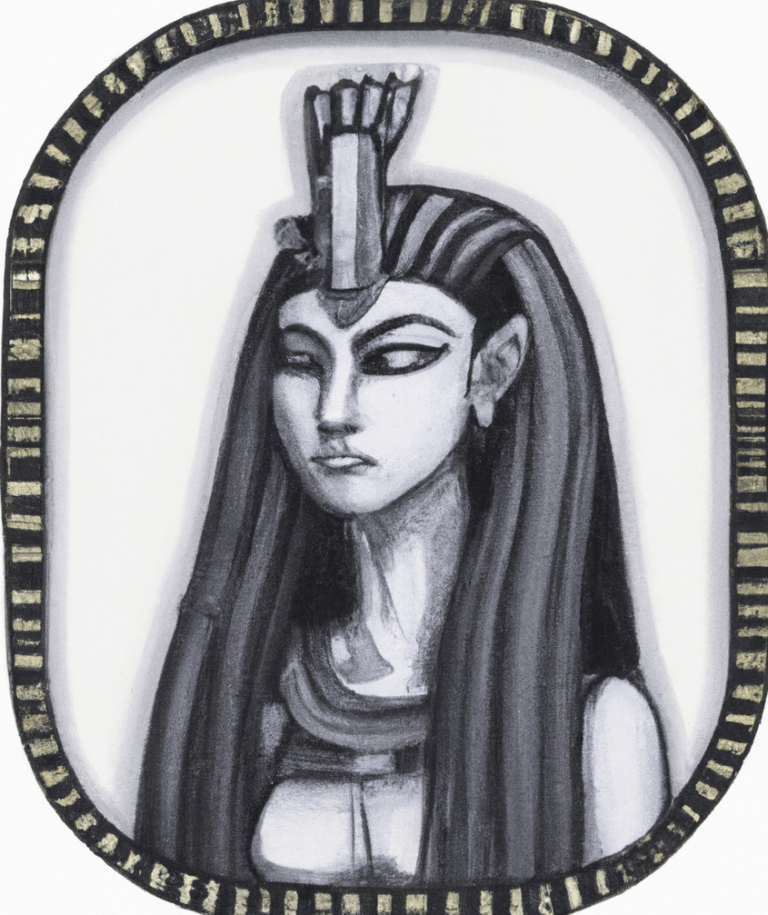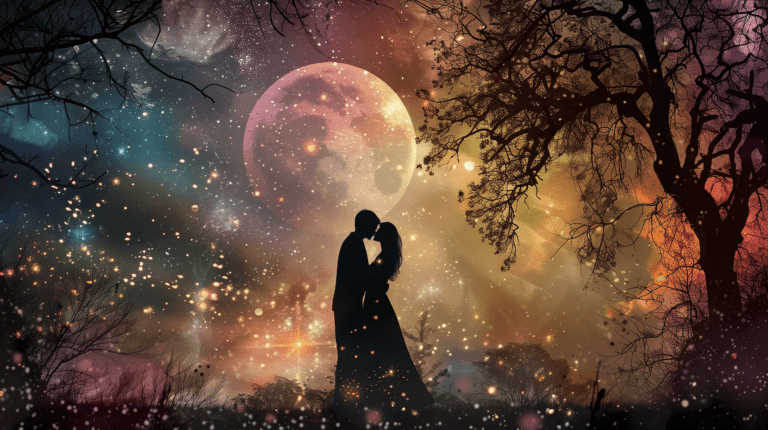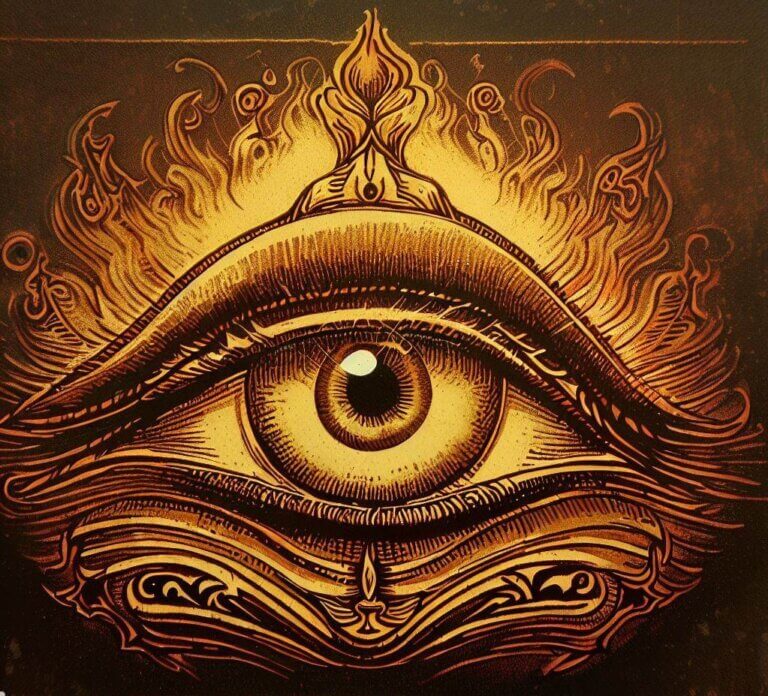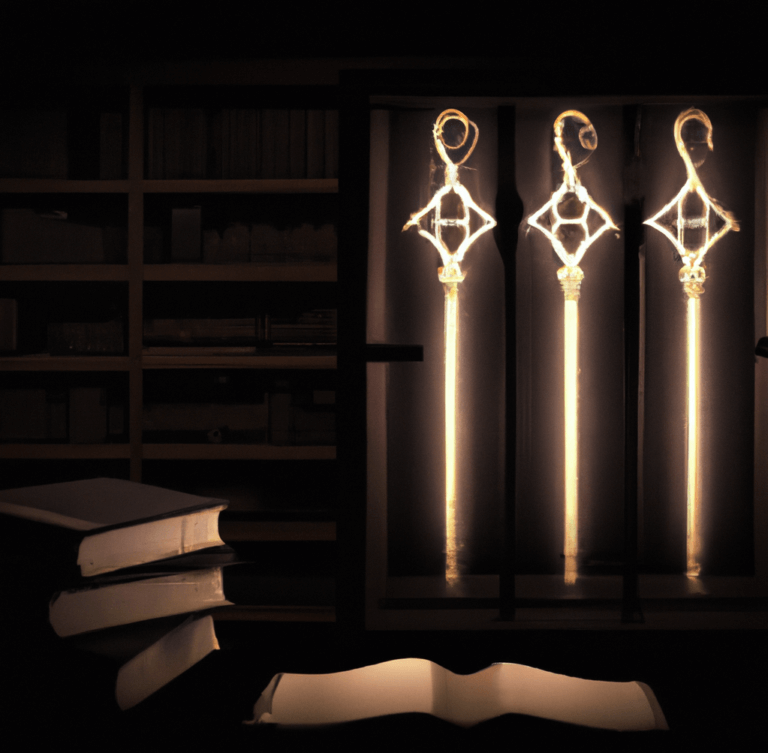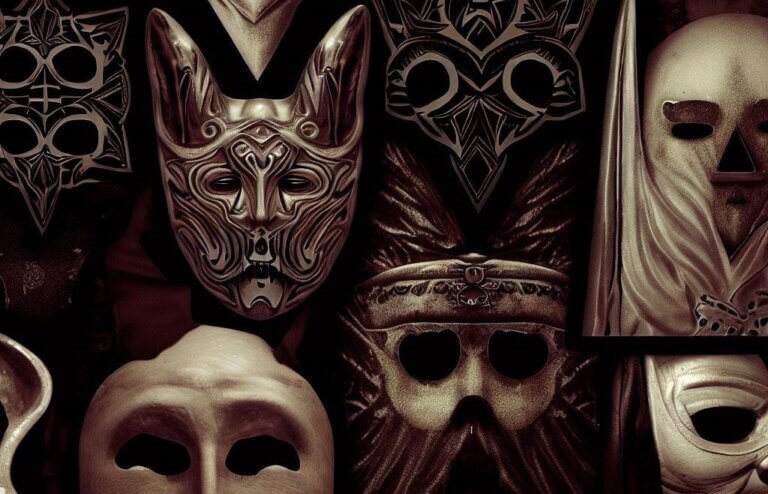Anubis and His Enigmatic Connection to Magick
Ancient Egyptian mythology is a treasure trove of captivating deities, each holding a distinct place in the pantheon. Among these revered figures is Anubis, the jackal-headed god associated with death, mummification, and the afterlife. But beyond his well-known role as a guardian of the deceased, Anubis possesses a profound relationship with magick—an aspect that unveils a fascinating intersection between spirituality and mystical practices. In this article, we delve into the enigmatic connection between Anubis and magick, exploring the symbolism, rituals, and beliefs associated with this powerful deity.
Anubis: A Guardian and Guide:
Anubis, known as Inpu or Anpu in ancient Egyptian, is often depicted as a man with the head of a jackal or as a full-bodied jackal. He was revered as the guardian of the necropolis and the embalmer of the deceased. Anubis played a vital role in the mummification process, overseeing the weighing of the heart ceremony in the Hall of Ma’at, where souls were judged for their afterlife fate.
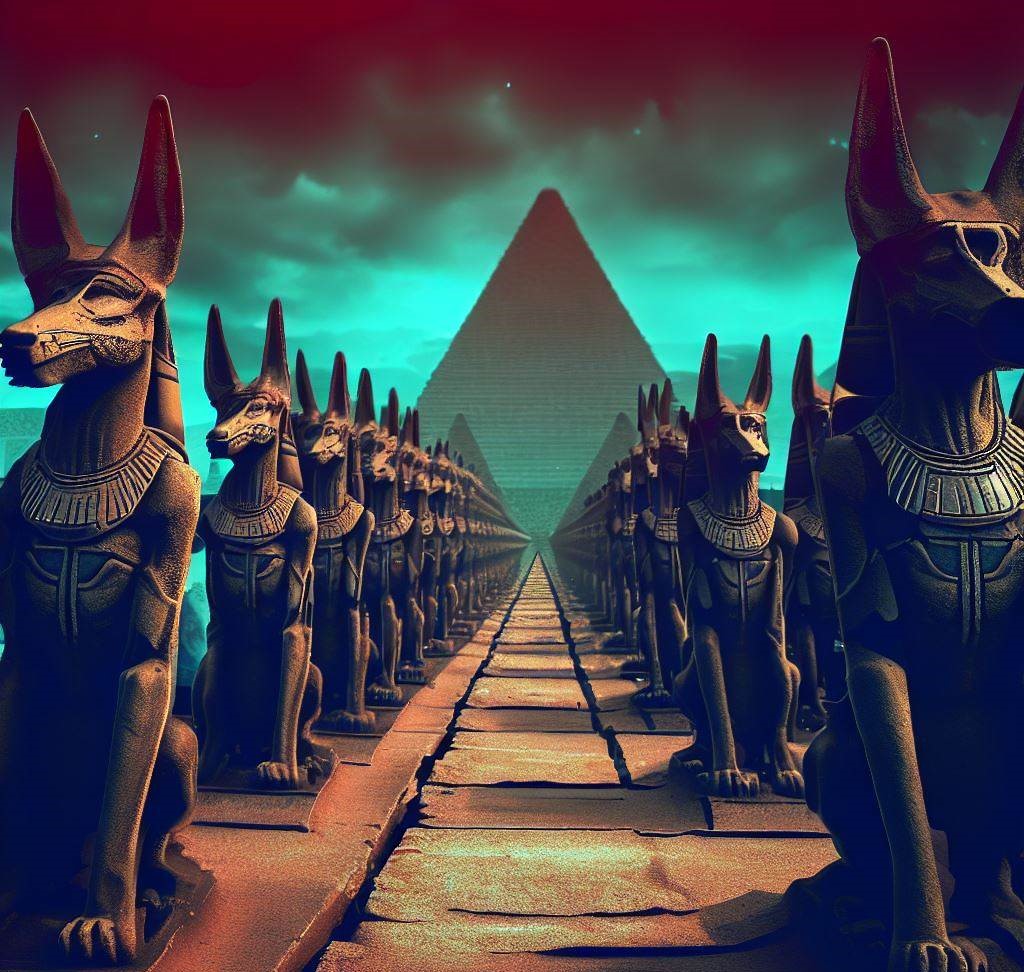
Symbolism of Anubis:
The symbolism surrounding Anubis carries deep spiritual meaning, and it is through these symbols that his connection to magick becomes apparent. The jackal, an animal associated with the twilight and the edges of civilization in ancient Egyptian culture, represents the liminal space between life and death. Anubis, with his role as a psychopomp guiding souls to the afterlife, embodies the transformative power of magick that bridges the gap between the mundane and the mystical.
Anubis and Magick:
Anubis’ association with magick lies in his ability to navigate the realms of the living and the dead. In ancient Egyptian belief, magick was viewed as a force that permeated all aspects of existence, including the afterlife. As a guardian and guide, Anubis was believed to possess knowledge of the mystical arts, granting him the power to traverse dimensions and assist those who sought to connect with the spiritual realm.
Rituals and Practices:
While specific details about ancient Egyptian magickal practices are scarce, it is understood that rituals involving Anubis often sought to invoke his assistance in matters related to death, protection, and spiritual transformation. Devotees would offer prayers, incense, and offerings at Anubis’ temples or shrines, calling upon his magickal influence for guidance, protection, and assistance in their spiritual journeys.
Moreover, the invocation of Anubis in personal magickal rituals can be seen as a way to access the deity’s transformative energy and wisdom. Practitioners may incorporate symbols and artifacts associated with Anubis into their workings, invoking his presence to aid in rituals involving divination, spirit communication, or protection.
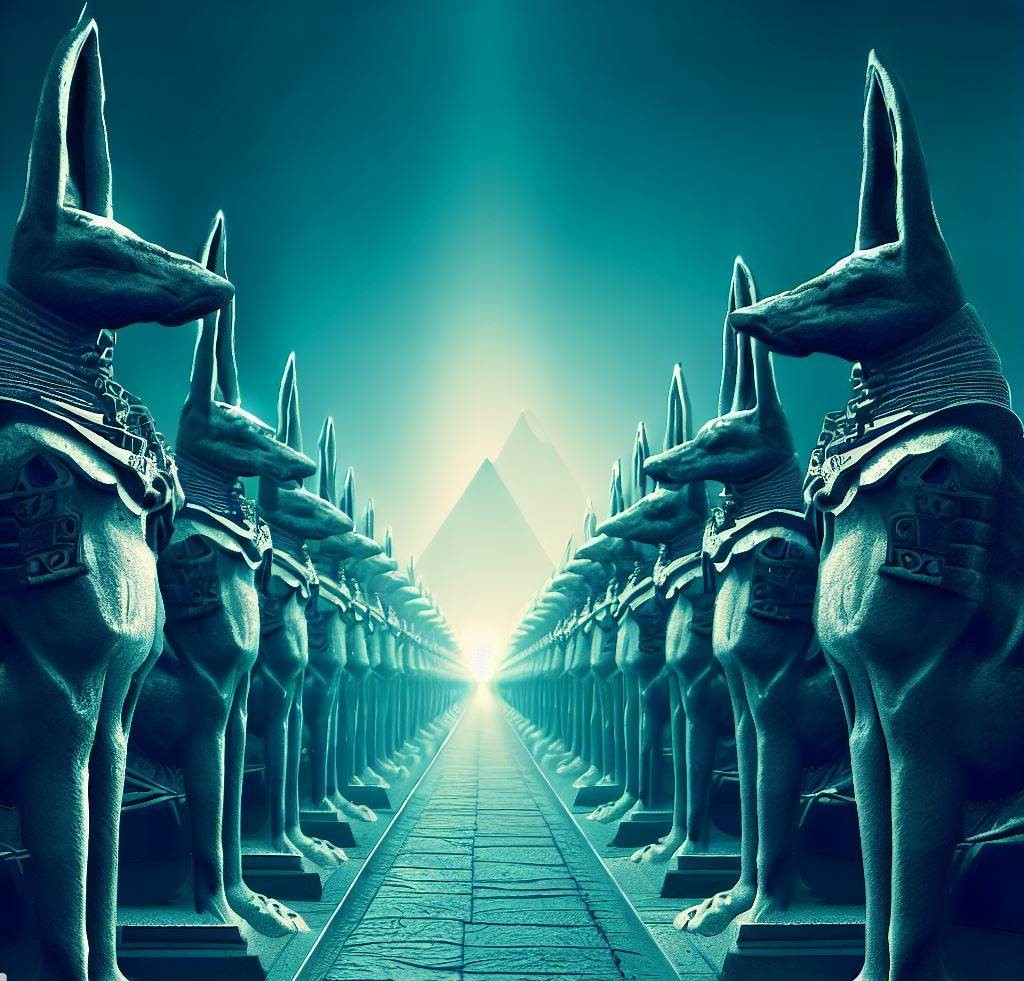
Anubis in Modern Magickal Practice:
In contemporary magickal traditions, Anubis continues to hold a significant place. Many modern occultists and magickal practitioners incorporate Anubis as an archetype or spirit guide in their workings, seeking his guidance and assistance in matters of transition, personal growth, and spiritual exploration. The enduring allure of Anubis reflects the timeless nature of his magickal energy, resonating with those who seek transformation and connection with the mysteries of life and death.
Conclusion:
Anubis, the jackal-headed deity of ancient Egypt, carries with him a profound connection to the realm of magick. His symbolism, rituals, and association with transformative powers make him an intriguing figure for those exploring the mystical arts. As we embrace the wisdom and magick of Anubis, we tap into the liminal space between the tangible and the ethereal, discovering the potential for personal transformation, spiritual growth, and the understanding of life’s deepest mysteries.
